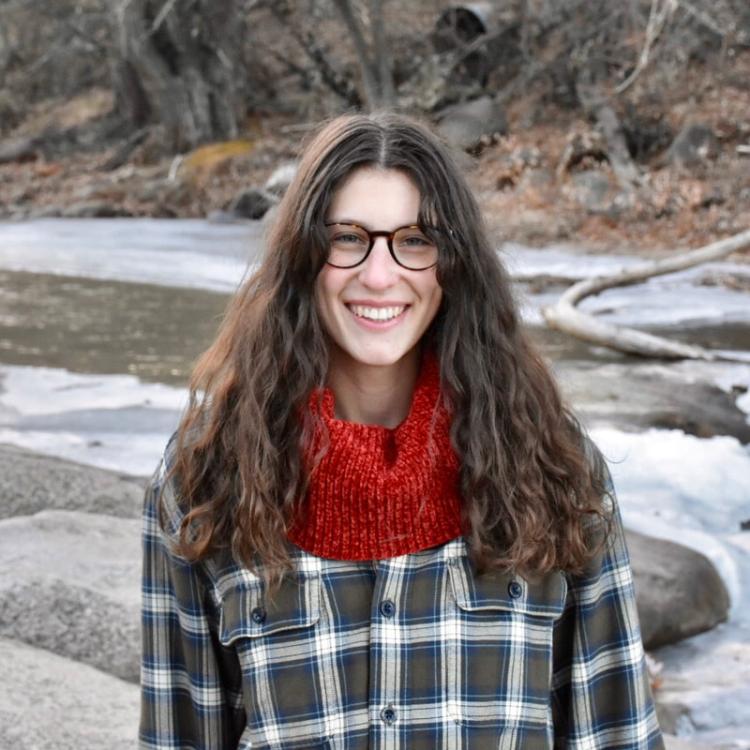Alumna's mural pays homage to the golden ratios in cinema
Toward the top floor of the Roser ATLAS Center on main campus, those who take the north stairs are now greeted by a new artwork as they approach the third floor. Seven rows of rectangles, ranging from a rusty brown one at the base to a bright, golden yellow one at the very top, may at first seem simplistic. But designed and installed by Sophie Adams (BS-TAM'21)*, a recent graduate from the ATLAS Institute, "The Golden Rectangle" aims to capture the movement of old filmstrips, and pays homage to the golden ratios in cinema studies—both in color and proportion of the shapes themselves.

Sophie Adams
Each row of the large 1.66:1 rectangle contains a different cinematic aspect ratio, depicted as if it was on a film strip, and listed from top to bottom 2.75:1 (ultra Panavision 70); 1.85:1 (widescreen theatrical); 19:9 (mobile phone); 2.39:1 (anamorphic); 16:9 (digital HD); 1.66:1 (European widescreen); and 1.33:1 or 4:3 (standard).
“I've always wanted my art to inspire people to learn more about whatever I'm making art about,” said Adams. “Art is such a cool way to get people interested and involved in topics that they wouldn't have necessarily come across themselves. It’s giving anyone and everyone the opportunity to get to learn new things.”
The mural is one of seven science-inspired, larger-than-life artworks that welcomed students, staff and faculty back to campus this fall. Completed primarily in the past year-and-a-half during the COVID-19 pandemic, this new series of public murals in and around campus was facilitated by the Nature, Environment, Science & Technology (NEST) Studio for the Arts.
Adams is currently the building coordinator for Artisan's Asylum Maker Space in Boston, Massachusetts, runs a commissioned-based embroidery shop and works with the Fiske Planetarium as an artist and graphic designer.
*The TAM bachelor's program was renamed CTD, (Creative Technology and Design).


